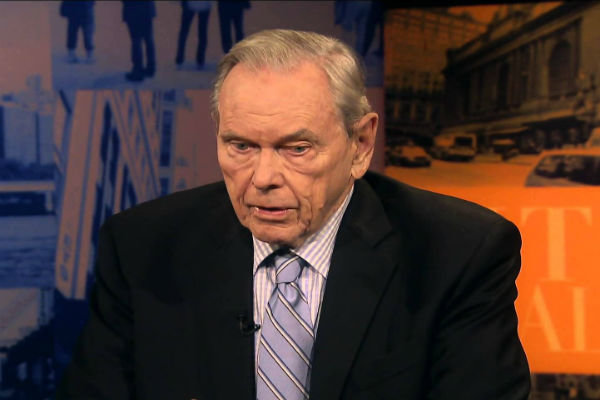Murphy refutes idea Trump acted recklessly to alleged gas attack in Syria

TEHRAN - Richard Murphy, the former U.S. ambassador to Damascus, rejects the view that Donald Trump reacted hastily and impulsively to alleged chemical weapons attack in Syria’s Idlib province on April 4.
“Photographs of civilians dead or dying from poison gases used in that attack were widely available within hours. So the President's reaction was not that ‘fast’,” Murphy tells the Tehran Times.
Iran along with Russia have proposed an independent fact-finding committee to investigate chemical weapons attack.
Russian President Vladimir Putin has said there is evidence that militants were preparing future chemical attacks in order to draw U.S. into Syria’s six-year war.
“While I am not a party to the current efficiency of American intelligence, it is my understanding that U.S. surveillance assets closely tracked the Syrian Air Force aircraft involved in the attack, which came from the Shyrat air base near Homs against targets in Idlib province,” Murphy argues.
Russia's Defense Ministry released a series of tweets in both Russian and English on its official social media account, saying Syrian militants were transporting "toxic substances" to insurgent-held areas of the war-torn Syria in order to convince the U.S. to step up its efforts to remove Syrian President Bashar al-Assad from power.
In a joint press conference with his Iranian and Syrian counterparts in Moscow Russian Foreign Minister Sergey Lavrov said the U.S. and its allies are attempting to stymie an international probe into the gas attack. He expressed strong skepticism about a preliminary investigation conducted by the UN chemical weapons watchdog, saying that its experts have failed to visit the site and it has remained unclear where the samples have been taken and how they have been analyzed.
"If our U.S. colleagues and some European nations believe that their version is right, they have no reason to fear the creation of such an independent group," Lavrov added.
Trump changing from ‘America first’ to ‘world first’
Back to Aug. 29, 2013 Trump tweeted that the U.S. would get “more debt and possible long-term conflict” if it attacks Syria and said Barack Obama needs congressional approval to attack the country. However when the Tehran Times asked Murphy why Trump himself did not seek the permission of Congress, he said, “What has changed is that Trump is now the American president. He reacted with deep emotion to the reports he was receiving of the deaths of Syrian civilians from the poison gas attacks.”
He added, “Voices from the U.S. Congress demanding that the administration seek congressional approval of deeper U.S. involvement in the Syrian civil war are being heard. How the president will answer those demands is as yet unclear.”
Some analysts have said the U.S. strike on April 7 on Syria’s Shayrat airbase, from which the U.S. claims jet fighters were used to drop chemical weapon on Khan Sheikhoun, is an end to Trump’s honeymoon with Putin. On the other side, some say the strike could lessen pressure on Trump whose aides were in contact with the Russian government during the presidential campaign.
When asked about such comments, Murphy said, “I think his authorizing the attack may have reassured some Americans that he has not committed himself and America to an unquestioning friendship with Putin. But I do not believe that explains why he reacted as he did in authorizing the U.S. missile attacks on Shyrat.”
The former U.S. ambassador also justifies the U.S. attack on Iraq in 2003 under the pretext that Saddam Hussein had hidden weapons of mass destruction.
“To this day many of those involved in authorizing the invasion of Iraq in 2003 remain convinced that there was sufficient cause to do so. The "evidence" to which they referred was ambiguous. Also, Saddam Hussein had deliberately preserved ambiguities in his statements about Iraqi efforts to develop a nuclear bomb,” Murphy said.
However Murphy sympathized with the Syrians who have been suffering greatly since the war started in the country in late 2011.
“My understanding of Syrian thinking is derived from Syria's refugees. As an admirer of the Syrian people from my days as US consul in Aleppo in the 1960s and as ambassador in the 1970s I am saddened by the humanitarian catastrophe which has overwhelmed their country.”
